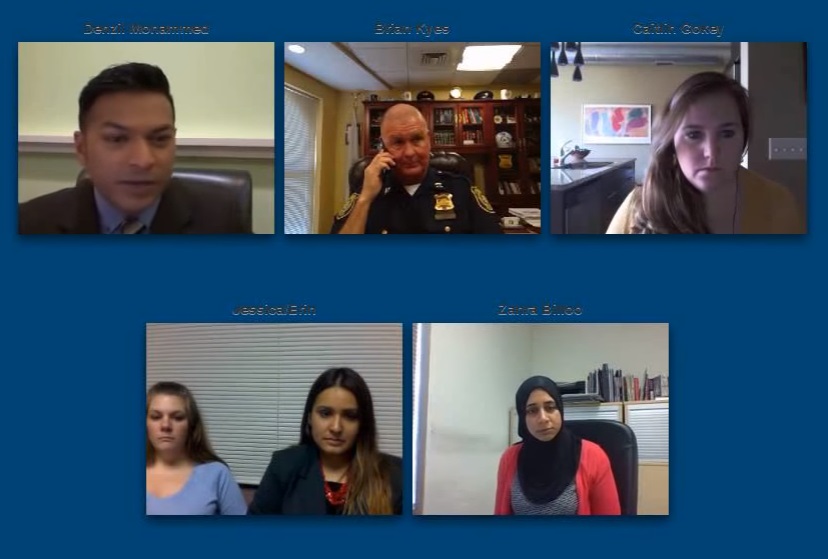We’re here to provide a safe and secure community for immigrants. We’re here, and we need them to collaborate with us.Chief Brian Kyes, Chelsea, MA, Police Department

Building relationships is the key to integrating law enforcement, immigrants and refugees. New Americans should know that collaborating and communicating their priorities with police allows everyone to focus on those issues together.
This was the main takeaway from Building United Communities: Immigrants, Cops and Crime, the latest free webinar from The Immigrant Learning Center, Inc. (ILC) Public Education Institute in Malden, MA, on October 6, 2016. Attendees from 40 states learned from experts in law enforcement, immigrant integration and messaging while sharing their own ideas with colleagues from around the country.
What are ways to build relationships?
- Caitlin Gokey of the Vera Institute of Justice and Jessical Bernal and Erin Fichter of Catholic Charities of the Archdiocese of Omaha, NE, emphasized building coalitions and alliances among community leaders, especially from communities of color or those that are under-resourced.
- Chief Brian Kyes of the Chelsea, MA, Police Department and Zahra Billoo of the Council on American-Islamic Relations agreed on using political pressure on police departments as an alternative by engaging other civic leaders or police chiefs in neighboring counties.
Other highlights from the webinar:
- Denzil Mohammed of The ILC Public Education Institute helped dispel several immigration myths: Immigrants are assets to the economy, pay taxes into systems that support Americans and commit fewer crimes than U.S.-born Americans. Violent crime rates tend to decrease as concentrations of immigrants increase.
- Given the current public discourse, the webinar also featured Julie Fisher-Rowe of the Opportunity Agenda who gave research-based messaging techniques for talking about immigrants in communities. She noted that when afraid or angry, the brain does not respond well to logic, so she advocated for framing conversations in terms of shared values by asking, “What kind of community do we want to be: one that encourages participation and contribution, or one that excludes and divides?”
Click here for resources and recordings.
Click here to be informed of the dates of the next webinar.
